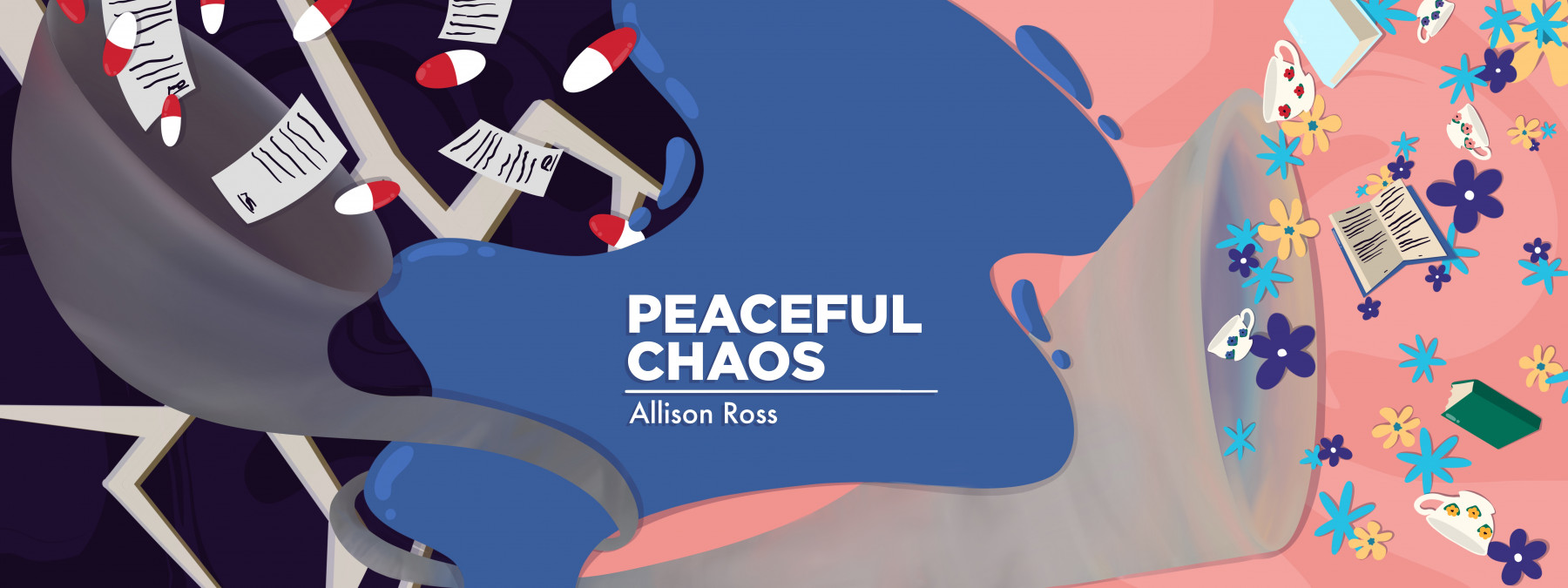Finding the Beautiful Life After Diagnosis
Written by |

Last weekend, a friend visited from another state. An enthusiastic cook who is curious by nature, he suggested we experiment with a new recipe.
We decided to make Afghan ashak, which are leek-stuffed wonton dumplings with garlic yogurt and spicy tomato sauce, and topped with a garnish of cilantro and mint. Though the cuisine was unfamiliar, the ingredients were not, so we happily diced and simmered and taste tested our way through the process, confident that something marvelous would be plated. (As fate would have it, we had to plate it three times to get the right texture and colors to post on social media.)
While prepping the food, we listened to traditional Afghan music for an immersive sensory experience. When we finally sat down to taste our meal, I felt a thrill of excitement in the acknowledgment that good friends and good food are simple, yet so meaningful.
Cooking together is a fun activity we both can participate in, regardless of my health condition. As a bonus, we discovered the sounds and smells of a culture that neither of us were previously familiar with.
Chronic illness patients grow weary of the phrase “new normal.” Undoubtedly, there is a definitive moment when we are diagnosed, after which every aspect of living transforms. But the psychological weight of before and after can be a lot to carry, in addition to the physical restrictions we now face as a result of our disease.
Referring to the present as something different touches a nerve for someone attempting to regain their original health and stamina. They also may have anxiety from the paradigm shift, as life is upended by an unfamiliar routine.
Instead of looking at the big picture and becoming overwhelmed, it sometimes feels better to adopt an approach of one day at a time. A bit of myopia allows us to let go of existential worry and be healthy and happy in the moment.
Sometimes it’s not necessarily the little things, but the new things that sustain us. A sparkle of interest. A flash of intrigue. A fascination with a part of life we hadn’t known was accessible to us.
Just in my own circle, there are fellow vasculitis patients who have taken up watercolor painting, crafting, quilting, fiction writing, and graphic design since their diagnosis. Another adopted two cats as companions for the several weeks she was on bed rest to let her body heal. Prior to falling ill, she was always traveling and didn’t have the time or space for pets. Though she no longer had a globe-trotting lifestyle or a luxurious salary, she found joy in quieter circumstances right at home.
All of these patients admit they never would have thought about their new hobbies had they been asked about them before diagnosis. In fact, the ability to pivot to different interests and create a calmer lifestyle was gratifying in surprising ways.
The Japanese concept of “ikigai” is compelling, particularly for someone who’s lost their purpose or craves new direction. There is no English equivalent, but the closest translation into a phrase might be “your reason to get up in the morning.” Often applied to work scenarios, it also pertains to chronic conditions just as well: It’s the feeling of needing motivation and constructing a life surrounded by things that satisfy us.
Also underlying ikigai are themes of positivity and motivation, which help refocus the mind forward. The catalyst for a new hobby doesn’t have to be financially driven, and it doesn’t have to alter our lives. It can be a series of tiny things that add up to a meaningful existence. Without inspiration, it’s easy to fall into dark patterns of hopelessness, insomnia, worthlessness, and depression.
Perhaps you can’t match the physicality you had in your “before” life — sure, your scope of possibilities may narrow in that regard. But instead of dwelling on the experiences you miss out on, imagine the new ones you can enjoy!
Even people struggling with their health may still be able to talk on the phone, engaging with loved ones in a better way than a few sterile lines of text or email. Birding, music, jigsaw puzzles, houseplants, and audiobooks are all low-maintenance pursuits for those who may be housebound or less active.
There are countless beautiful things in the world waiting for us to discover. An illness does not need to correlate to a crushed spirit. A medical diagnosis is not an end, but a transition — and it isn’t restricting if we don’t frame it that way. It’s certainly an adjustment to be chronically ill, but there are new joys to explore if we are open to finding them.
***
Note: ANCA Vasculitis News is strictly a news and information website about the disease. It does not provide medical advice, diagnosis, or treatment. This content is not intended to be a substitute for professional medical advice, diagnosis, or treatment. Always seek the advice of your physician or other qualified health provider with any questions you may have regarding a medical condition. Never disregard professional medical advice or delay in seeking it because of something you have read on this website. The opinions expressed in this column are not those of ANCA Vasculitis News or its parent company, Bionews, and are intended to spark discussion about issues pertaining to ANCA vasculitis.







Chris
There is nothing beautiful when you lose everything you worked so hard for; career, family, friends, vacations, just spending money to do something, peace, calm, health... It's been a hell of a 17 years that's for sure. I wouldn't call it beautiful at all. It WAS a beautiful life pre-dx. But I'm very happy some can find the silver lining. I tried, but it just doesn't seem to show up.
Susan
It's true. There is nothing beautiful in losing everything one has worked so hard for. In fact it's lousy, totally life altering and at times all too much life threatening.
Yet neither is any disease the sum total of one's life, although by the 16-17 year point where both you and I are now, it surely seems that way. The need to revisit our losses comes up periodically and repeatedly. Personally I think it's only a problem if it's not periodic but rather daily. Either way, grief is part of serious illness. A part that will rise and flow over time. Finding a professional to share those states with is essential in my view. It is only by opening the blocks in our life to some light that we can experience them breaking up and our life force flowing more fluidly again. It may be weekly in the bad times or monthly to quarterly when all is stable.
The rest for me has become a spiritual journey. At times religious but usually more spiritual, and by that I mean directly connected to the greater good. At times it's been my relationship with the birds, at times it's been various forms of handwork, lately it's been a newfound interest in watercolors. When I sit down to push those paints around a piece of paper with a brush, oddly a peace comes over me. Does it make up for all I've lost? Not even close. But does it give me some peace and well being in this present moment? It surely does. And if what I paint doesn't please me I can simply toss it away.
Shortly after diagnosis I asked a woman recovered from breast cancer if I would ever again wake in the morning without thinking about vasculitis. She smiled gently and said yes, but in the meantime look out for that bus so it doesn't hit you while crossing the street. Still laughing.
Peace to you Chris, and all the rest of us.